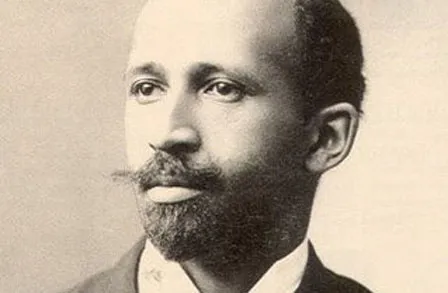History Has Amply Vindicated W.E.B. Du Bois’s Opposition to Monopoly Privileges For Union Officials

Demographic Evidence: Forced Unionism Is Bad For People of All …

In a late 1933 commentary, W.E.B. Du Bois, a cofounder of the NAACP and the editor of its journal, said of AFL union bosses: “They have affirmed and still affirm that they wish to organize Negro labor when this is a flat and proven falsehood.” Image: www.poetryfoundation.org
As many Americans who are interested in the Right to Work issue know, in recent decades leaders of the NAACP have formed a close political alliance with Big Labor. To justify this alliance, NAACP spokesmen frequently suggest that monopoly unionism as promoted by federal labor law advances the interests of black Americans.
Rarely is it mentioned nowadays that the founders and early leaders of the NAACP had a completely different perspective. In a recent fact sheet for the Institute (see the link above), Frederick Douglass Society President Stacy Swimp brings back into the light this important part of black history.
Swimp quotes the explanation of Herbert Hill, the labor director of the NAACP from 1951 to 1977, as to why “spokesmen for the black community” opposed the establishment of “labor unions as exclusive collective bargaining agents through a process of governmental certification by the National Labor Relations Board.” As Hill observed, “most of the unions affiliated with the American Federation of Labor [or AFL, a precursor to today’s AFL-CIO] either excluded Negro workers from membership . . . , thus preventing their employment in union-controlled jobs, or engaged in other discriminatory practices . . . .”
W.E.B. Du Bois (pronounced du boys), an NAACP cofounder and the editor of its journal, blasted AFL officials for having “lied brazenly about their attitude toward Negro labor. They have affirmed and still affirm that they wish to organized Negro labor when this is a flat and proven falsehood. They do not wish to organize Negroes. They keep Negroes out of every single organization when they can.”
Swimp adds that even after legal sanctions, social pressure, and other factors convinced union officials to cease excluding blacks and other minorities from membership and defending segregation in the workplace, the “straight-jacket work rules” and “cookie-cutter compensation schemes” routinely imposed by union officials wielding monopoly-bargaining privileges continued to have the effect of hurting blacks and other minorities. Herbert Hill singled out union boss-negotiated seniority systems as being especially harmful to minorities, even when they were not overtly discriminatory.
Swimp goes on to ask who is right “about the economic impact of monopolistic unionism” on minority employees: W.E.B. Du Bois and Herbert Hill, or current NAACP officials who are closely allied with Big Labor?
As Swimp shows, “foot voting” by blacks and other minorities over the pas few decades vindicates the prescience of Du Bois, Hill, and many others who shared their perspective. Foot voting against monopolistic unions is possible, broadly speaking, because federal labor law permits states to enact Right to Work statutes and constitutional amendments prohibiting the termination of employees for refusal to join or pay dues to an unwanted union.
State Right to Work laws, which have been in effect for 11 years or more in 22 states, and were adopted in two more in 2012, “loosen substantially the control Big Labor exercises over dissenting employees,” as Swimp explains.
And the data show black Americans prefer living in Right to Work states. For example, from 2000 to 2011, Swimp notes, the percentage growth of the black population in the 22 states that then had Right to Work laws on the books was 19.4%, nearly triple the 7.1% gain for forced-unionism states as a group.
The demographic data also show Hispanics, Asians and whites (including Hispanic and non-Hispanic) are voting with their feet against forced unionism, as Swimp documents. Forced unionism is correlated with fewer opportunities for employees and prospective employees, regardless of their race, ethnicity, educational background, or their personal skills and work ethics.
Current leaders of the NAACP and other groups who purport to be advancing the interest of blacks may find it convenient to draw on Big Labor’s forced dues-fueled political power and money, but they shouldn’t pretend that they are aligning themselves with the union hierarchy because monopoly unionism is good for the people they claim to represent. The facts indicate otherwise.

